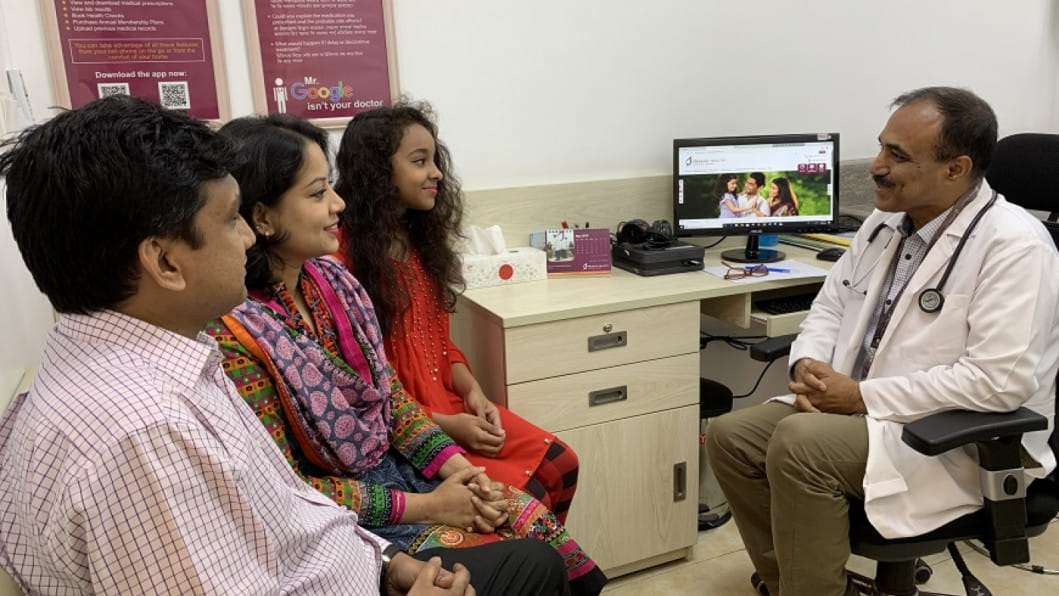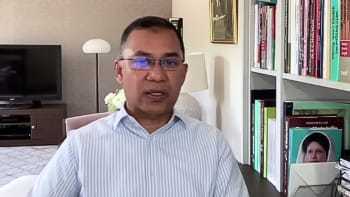World family doctor day and us

Every year, World Family Doctor Day is significantly observed globally on May 19. However, since the concept of family doctors still remains quite vague in our country, this day goes by without much notice. In 2010, The World Organisation of Family Doctors – WONCA decided to recognise May 19 as the World Family Doctor. And subsequently, the World Health Organisation (WHO) recognised this day to signify the contribution of family physicians in providing healthcare services, their importance, and most importantly to create a worldwide network of family physicians. The theme for this year is, “Family doctor: caring for you for the whole of your life.”
So, who are family physicians? If we look back in time, all members of a family used to visit one local doctor for most of their healthcare needs and this was the norm all over the world. However, as the perimeter of health sciences continued to expand and medical technology kept developing, doctors felt the need to acquire more knowledge on different specialties to better treat various illnesses that emerged. Hence, the number of specialisations in different disciplines began to grow. As patients then began to visit specialists over family physicians for any kind of illness, the old relationship between the doctor and patient was gradually getting lost. This intensified after World War II. To overcome this, a measure was taken to train family physicians in specialized knowledge. A specific discipline was then selected with the help of a distinct curriculum and training method.
Gradually, most countries worldwide reshaped their health services structure whereby except for emergencies, every patient has to go to a family physician first. After the assessment by a family physician, the patient may be referred to a specialist if required. Research shows that family physicians are capable of managing 80% of all illnesses. The remaining 20% who are seen by specialists are later referred back to the family physicians by the specialists for the patients to receive post-treatment care. Hence, this system again restores the family physician as the centre point of all their healthcare needs.
Where do we stand at the global backdrop of all this? Over the years we have had numerous achievements in our healthcare sector - we have successfully reduced the rates of child and mother mortality, contraction of tuberculosis, malaria, and HIV. However, we are yet to establish the process of providing healthcare to our people with the help of our family physicians – those who can cater to both our primary care needs and chronic illnesses. We need to create a proper referral pathway and processes for that to happen. These processes would not only make family physicians more available, but should prohibit selling drugs without prescription, enacting strict laws to open pharmacies, and maintaining proper guidelines when setting up laboratories and clinics. This would also lessen the burden of extra patients in specialised chambers while reducing cases of hospitalisation. But to achieve all this and to bring back the family doctor, wide public awareness among the masses is required. Eventually, the current state of distrust that patients in our country have regarding healthcare will reduce and our doctor-patient relationships will greatly improve. And that’s what we are trying to achieve at Praava Health - a network of family health centres bringing back the concept of family physicians and raising the bar for healthcare in Bangladesh with international quality doctors, diagnostics, and technology. After all, it’s all about the people we serve.
Dr. Lt. Col. Md. Kabir Ahmed Khan (Rtd.) works as a Consultant (Family Physician) at Praava Health

 For all latest news, follow The Daily Star's Google News channel.
For all latest news, follow The Daily Star's Google News channel. 



Comments